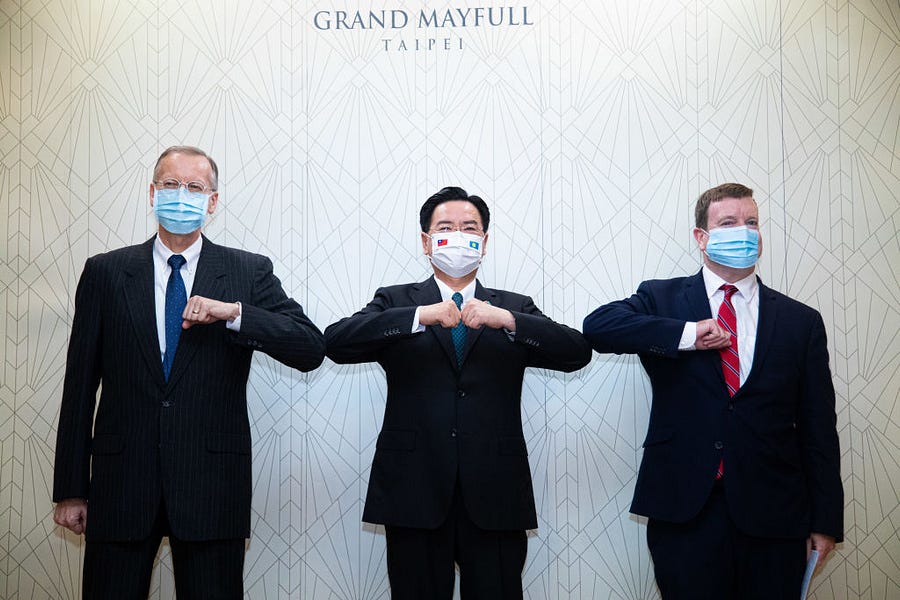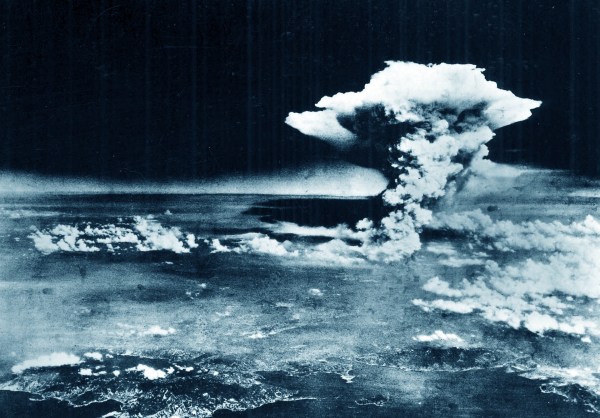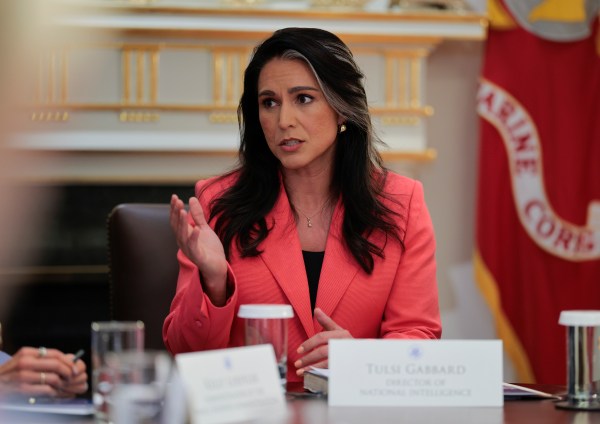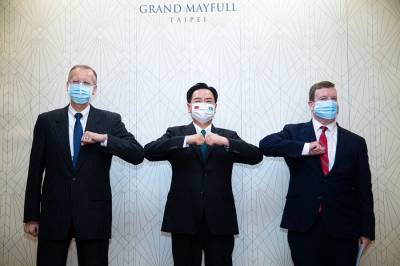On Sunday, March 28, an American diplomat paid an official visit to Taiwan. Ordinarily, this type of meeting wouldn’t be a big deal. American diplomats fly around the world all the time, even during the coronavirus pandemic. But for the Chinese Communist Party (CCP), the trip was a major affront—one that threatens the “peace and stability” of the Taiwan Strait.
The U.S. ambassador to Palau, John Hennessey-Niland, didn’t visit Taipei on his own. He joined a delegation led by Surangel Whipps, the president of the Pacific island nation of Palau. While the U.S. is committed to defend Palau until 2044, the country gained its independence in 1994 and maintains its own foreign affairs. This includes relations with Taiwan. While many countries won’t engage directly with the Taiwanese, for fear of evoking the CCP’s wrath, Palau has kept the diplomatic relationship alive.
Whipps made the trip to discuss ways to contain the coronavirus, an obvious concern for both island countries. Nevertheless, Ambassador Hennessey-Niland’s participation drew a sharp rebuke from Beijing. Taiwan is a democracy, but the CCP claims that it has no right to exist as its own sovereign country. Indeed, Taiwan’s very existence is a constant reminder that Chinese identity need not be wrapped up in loyalty to the CCP and its peculiar form of authoritarianism.
“China firmly opposes any form of official interactions between the U.S. and Taiwan,” Zhao Lijian, a Chinese foreign ministry spokesman, said during a press conference on Monday. “This position is consistent and clear.” Zhao warned the Biden administration that it “must stop any official interaction with Taiwan, refrain from sending any wrong signals to Taiwan independent forces, stop any attempt to cross the bottom line, and properly handle Taiwan-related issues with prudence, lest it should damage China-U.S. relations, as well as peace and stability across the Taiwan Strait.”
Zhao insisted that the “One China principle”—meaning Taiwan won’t be treated as an independent nation—“is a universally recognized norm for international relations and a common consensus recognized, accepted and practiced by the vast majority of countries in the world.” From Beijing’s perspective, the matter is settled.
In reality, the matter is much more complicated. The U.S. formally recognized Beijing’s sovereignty in 1979 and has conducted diplomacy with the People’s Republic of China (PRC) ever since. Taiwan, which calls itself the Republic of China (ROC), was relegated to unofficial diplomatic status. According to press reports, Ambassador Hennessey-Niland became the first U.S. envoy to call on Taipei since 1979, and that’s why the CCP’s Zhao was incensed. It should be noted, however, that while the U.S. generally refrains from direct diplomacy with Taipei, other senior American officials have visited Taiwan in the preceding decades.
The “One China” principle is confusing. As this report by the Congressional Research Service in 2015 states at the outset, the U.S. “One China” policy “concerning Taiwan remains somewhat ambiguous and subject to different interpretations.” While the U.S. has “acknowledged” the PRC’s claim of sovereignty over Taiwan (the ROC), it hasn’t “recognized” the legitimacy of Beijing’s argument. Nor has the U.S. recognized Taiwan as an independent nation. Instead, American policy has hinged on the idea that the cross-strait dispute can be settled “peacefully.” That’s looking increasingly unlikely, which makes Taiwan a crucial flash point in the rivalry between China and the U.S.
There has been much debate in American military circles over how best to defend Taiwan. It is doubtful that the U.S. could prevent Beijing from seizing the island. It is also doubtful that the U.S. would be willing to sacrifice much blood and treasure in Taipei’s defense. To date, the U.S. has sold billions of dollars in defensive arms to Taiwan as part of a “porcupine strategy,” which is intended to raise the costs of any military action initiated by the PRC. The ROC’s current president, Tsai Ing-wen, has pursued this course throughout her tenure, which began in 2016. For example, during their final days in office, Trump administration officials boasted that the U.S. has sold more arms to Taiwan in recent years than ever before—$15 billion worth of arms in four years, as compared to $14 billion worth in the previous eight years.
The increased arms sales were followed by last-minute diplomatic rules changes as well. On January 9, then-Secretary of State Mike Pompeo announced that the State Department was lifting a set of “complex internal restrictions” that were devised to limit “our diplomats, servicemembers, and other officials’ interactions with their Taiwanese counterparts.” These self-imposed rules were intended to allay Beijing’s concerns that the U.S. would recognize Taiwan as an independent state.
It is in this context that Ambassador Hennessey-Niland joined the delegation from Palau. Earlier this week, the Financial Times reported that the Biden administration was preparing new guidelines to make it easier for American diplomats to meet with their counterparts in Taiwan. This, too, drew a furious reaction from the CCP.
Another Chinese foreign ministry spokesperson, Hua Chunying, addressed the report during a press conference on Tuesday. “With regard to U.S.-Taiwan interactions, China's position is clear and consistent,” Hua said. “We firmly oppose any form of official exchange between the U.S. and China’s Taiwan region. We hope the U.S. side will attach high importance to China’s concerns and prudently and properly handle Taiwan-related issues to avoid further harming China-U.S. relations.”
Other diplomatic moves may be in the works as well. On March 25, the House Foreign Affairs Committee advanced a bipartisan bill led by Republican Rep. Young Kim and Democratic Rep. Brad Sherman, both of California, urging the State Department to restore Taiwan’s observer status at the World Health Organization. Taiwan had such status until 2017, when Beijing forced it out of the WHO. During a press briefing the day after the bill was introduced, the CCP’s Hua blasted the bill as a “serious breach of the One China principle” and urged the U.S. “not to help the Taiwan region to expand its so-called ‘international space.’”
The U.S. and Taiwan also signed a memorandum of understanding this week that will pave the way for greater coordination between their respective coast guards. The intent is to make the porcupine a bit pricklier should Beijing seek to take it in the near future. The increased cooperation is also intended to serve as a response to the CCP’s increasingly hostile maritime actions. Naturally, Hua was not amused, telling reporters that the U.S. should “stop official exchanges and military interactions with Taiwan and be prudent on Taiwan-related issues.” Hua also urged “Taiwan not to try to add to its importance by soliciting U.S. support.”
The increasing tension is easy to see. Speaking at China’s annual National People’s Congress earlier this week, Foreign Minister Wang Yi warned the Biden administration that the CCP’s claim on Taiwan is an “insurmountable red line” that shouldn’t be crossed.
It may only be a matter of time until the CCP decides to erase the red line altogether.






Please note that we at The Dispatch hold ourselves, our work, and our commenters to a higher standard than other places on the internet. We welcome comments that foster genuine debate or discussion—including comments critical of us or our work—but responses that include ad hominem attacks on fellow Dispatch members or are intended to stoke fear and anger may be moderated.
With your membership, you only have the ability to comment on The Morning Dispatch articles. Consider upgrading to join the conversation everywhere.